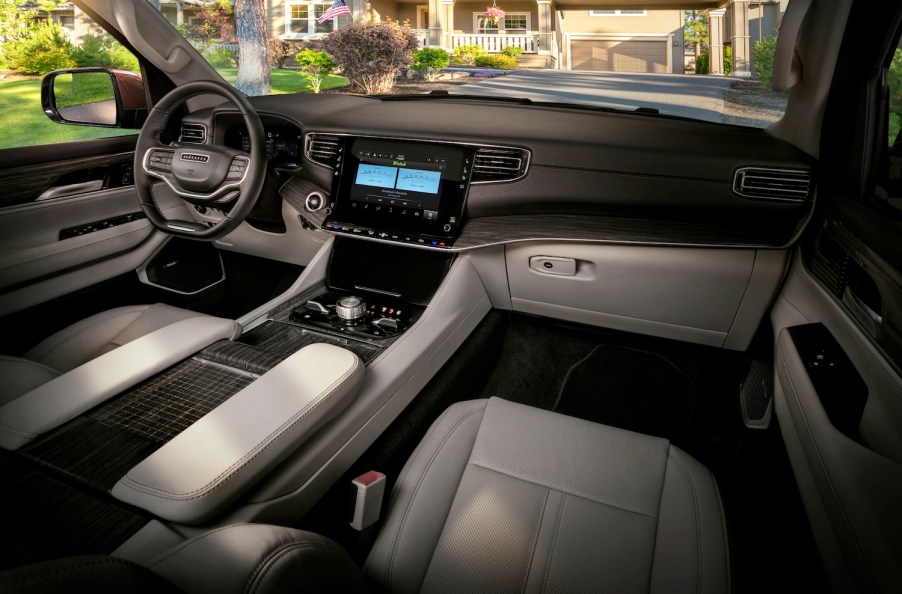
It Could Be Dangerous To Listen to Music Every Time You Driver Your Car
Rocking out to your favorite playlist can turn the most mundane commute into a blast. I personally love music, singing along, and even dancing at stoplights. So listening to music while driving is one of the highlights of my day. But leaving your stereo system cranked all the way up, for every single drive, can actually be dangerous. Firstly, it’s important for car safety that you can hear the people around you while backing up. And secondly, loud music can mask car sounds and these noises may signal something is wrong with your car.
Should you shut off your radio while backing up?
One of the dangers of backing up a vehicle is striking a pedestrian who is standing or walking in your blind spot. Turning off your radio makes it easier for you to hear a potential victim or a bystander shouting for you to stop.

Many commercial vehicles have a backup alarm installed, so pedestrians know when it is in reverse. These alarms also mute the radio so the driver can better hear signals from other drivers or people standing nearby.
Recently, several automakers have begun installing reverse mutes on their vehicles. This includes Audi and Volkswagen. Some drivers complain that they can back up a car with the radio playing, and these automakers do allow them to disable the option in a menu. But the reasoning is that even one life saved is worth us all missing a few seconds of music now and again.
Even if your vehicle does not have a built-in reverse mute, you can choose to shut it off for maximum situational awareness when reversing.
Can you diagnose your car based on an odd noise?
Changes in the noise your car makes while you drive down the road can be a great indicator that something is wrong with the vehicle. A grinding sound, a high-pitched squeal, or even a change in your engine’s noise can signal various issues you’ll want a mechanic to diagnose.

The most important element of an unusual vehicle noise is actually not the noise itself, it’s when you hear the noise. If your vehicle makes an odd noise at idle, even with the car sitting still, this probably means the problem is isolated to the engine or exhaust. If you hear the noise when you rev the engine, whether parked or moving, it signals a different engine or exhaust problem.
There are two major types of noises your vehicle makes while driving down the road. The first is an “engine speed” noise that gets worse as you press the accelerator.
The second moving noise is a “road speed” noise. This noise gets louder as you move faster, but you can still hear it when your car is rolling in neutral or shifts and the engine idles down. This second noise signals a problem with the drivetrain that could include your brakes or wheel bearings. This noise may be louder on one side of the car or another, or get worse when you are cornering. You may be able to narrow down its location by rolling down different windows or driving next to a wall and listening for the echo.
If your vehicle is making an odd noise and you schedule a checkup, your mechanic will ask when you hear this noise. It would also help them to know how long the noise has been going on, and if it is worse on some days than others. Finally, they will ask you to describe the noise or, better yet, play them a recording. You can learn more on the My Car Makes Noise website.
How often should you listen to the noise your car makes?
If you listen to loud music every time you drive, its a good idea to shut the stereo off at least once a week and listen to the sounds your vehicle makes. Do some low speed driving and do some high-speed driving. Pay special attention to any changes between the noise of this week’s drive and last week’s drive–even if they are not especially loud.

If you do not listen to your vehicle periodically, you might actually miss important noises. For example, your brake pads have a metal tab engineered to grind against your brake rotor and make a high pitched squealing noise–just before your pads wear out and need replacing. But if you keep driving with this squealing noise, the tabs may brake off and you won’t be able to tell you need new brake pads.
Next, learn how to read your spark plugs to diagnose your car or hear vehicle noises that signal a bigger problem yourself in the video below:



